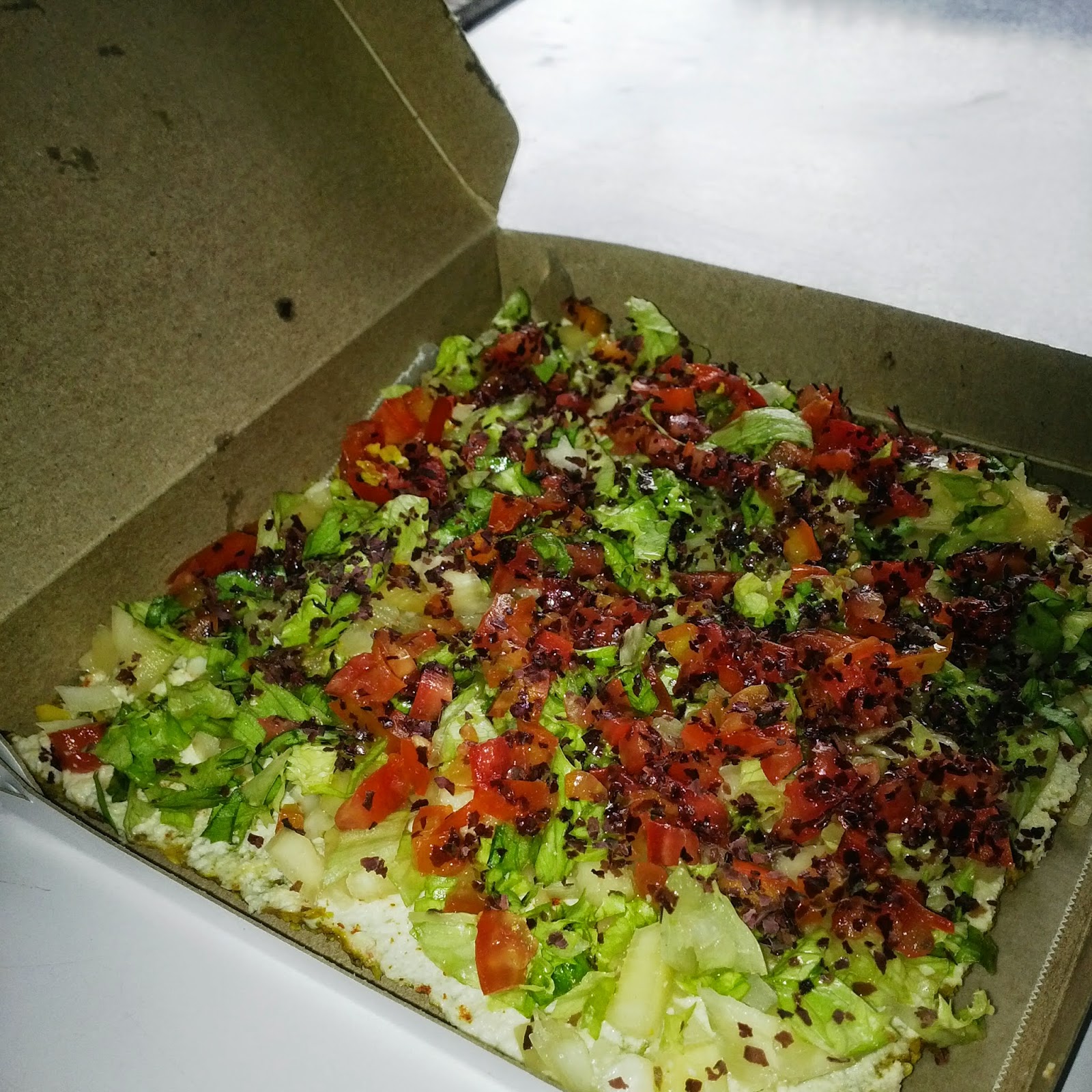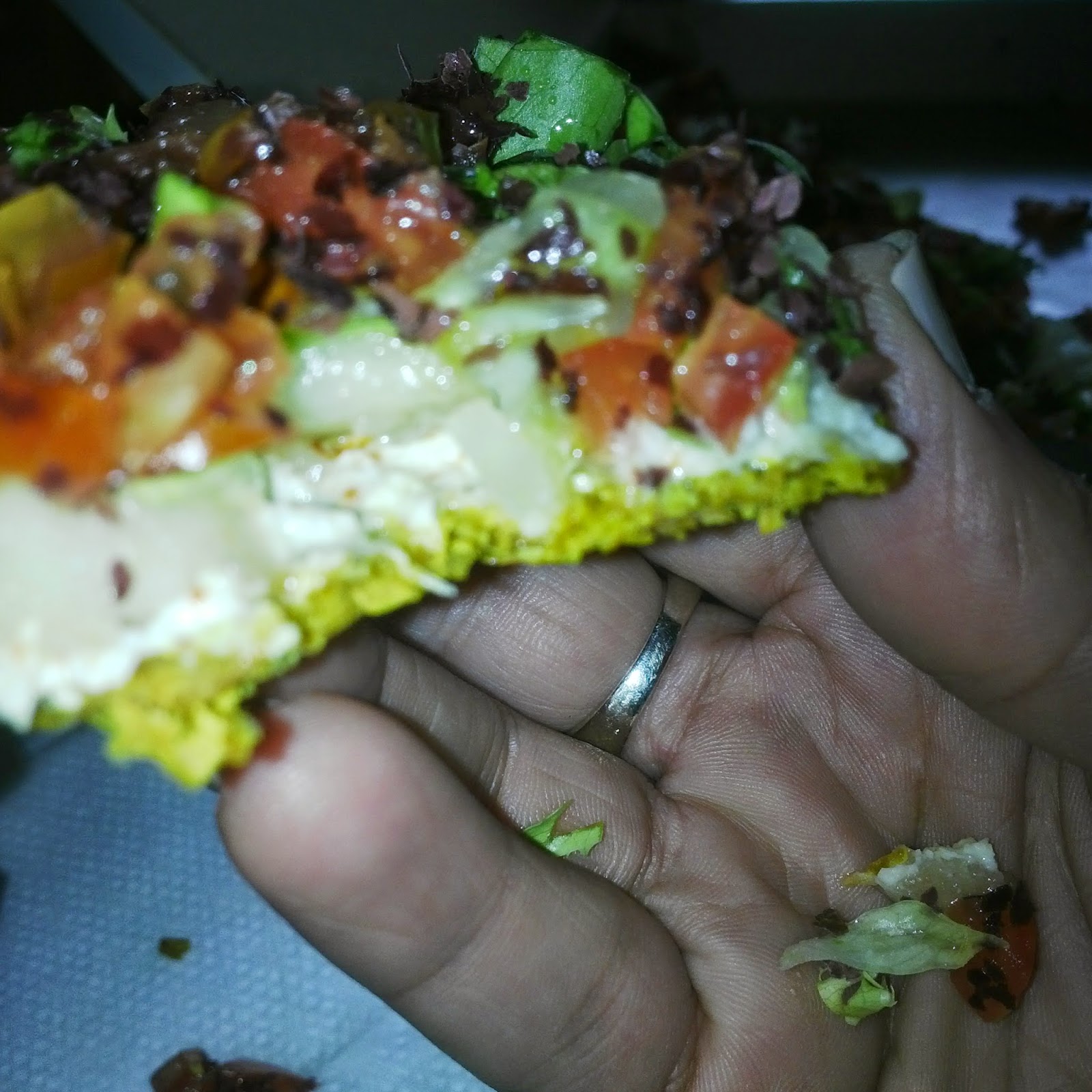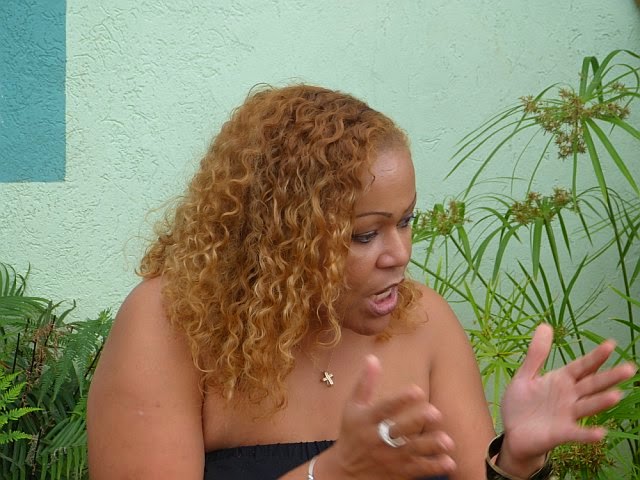Justice, Truth be Ours Forever…What does Justice look like?
Poor Governance… What are our options?
I was frustrated with the present government. I watched our Prime Minister deliver the main address at the PNP annual conference. I listened carefully. “So this is as good as it gets with the PNP? What are our options?” I was desperate for an alternative. But when I looked across to “greener” pastures, that hope dimmed. I blogged then about our need for a credible alternative, and opined that in their present state, I did not think that the JLP was much of a choice. I begged the JLP. I pleaded with them.
I was challenged, on separate, unrelated occasions by two people that I think highly of, whose opinions I respect, to think carefully about what I was saying. Their common thesis was “how can a credible alternative reside in another creature of the same system?” (my words). Think about it. How different are the JLP and the PNP really? Was I looking for mere respite or was I in search of a systemic fix?
In May 2010, under a JLP government, turmoil in the community of Tivoli, itself a JLP garrison, resulted in 72 civilians being killed. Having initially resisted an extradition order for “community leader” Christopher Coke, then PM Golding eventually capitulated and ordered the security forces to enter Tivoli, where it was thought he was hiding, and extract Coke for hand over to the US authorities. Conflict arose when the security forces came smack dab against resistance from elements in Tivoli. The entire city remained on lock down for a few days. Property was destroyed. People died. The nation and the world were appalled at what happened.
 |
| The Don Reigns Supreme |
 |
| What were these barricades supposed to do? Who erected them? |
 |
| Security Forces Ordered In… to do what exactly? What was their mission? |
The Tivoli COE: Facing what’s in the Mirror
We are now into the second week of the Tivoli COE and I am disturbed.
 |
| Maiden Cay |
 |
| Hellshire |
From Day 1 of the enquiry, I have grappled with this observation:The COE is being conducted in two languages. For the most part, the people giving testimony are doing so in Patois, but the lawyers are questioning in English. The need for clarification has come up repeatedly. Conflict between the written statements of the witnesses and what they are actually saying in the enquiry come up over and over again. You see, the people speak only Patois. But their written statements are in English. Are the discrepancies evidence of lies or are they misalignments, “lost in translation” as it were ?
What does Justice Look Like?
Consider this: Garrisons and Dons are a construct of the Politician. It was a way of securing and mobilising large blocks of votes in order to secure power. Both the PNP and the JLP have associated garrisons and dons.
Over time, the Don has evolved beyond the politician as his power source. He amassed wealth through his own means and wielded influence outside of the Politician.The balance of power shifted. The Politician now had to kowtow to the Don in order to keep his voting blocks secure.
The same Politician who birthed the Don and the Garrison, is the same Politician who sent in the Security Forces in the face of pressure and embarrassment. When the people demonstrate loyalty to their new boss the Don, and people die, that same Politician convenes a Commission of Enquiry to do what? Elicit truth? Seek justice? Justice for whom? And what does that justice look like?
Don’t seek to differentiate between JLP and PNP. The scenario that played out in May 2010 and the COE in 2014 could well have happened in another garrison, with different administrations playing alternate roles.
The Solution cannot reside with either the PNP or the JLP
Toggling between the JLP and PNP has landed us here. Their antecedents are the same. Their mechanisms are the same. Only the individuals differ.
The move from slavery to being a freed people under Britain, to becoming an independent nation took many years. It took challenging to laws of the day and agitating for change to move us along that trajectory. It took demonstrations. It took representation at the highest levels. Perhaps we just got too unwieldy and expensive for Britain to keep us on as a colony. Once we decided what we wanted however, we had to go after it.
Perhaps Jamaicans will have to challenge the status quo in similar fashion… how else will the systemic issues that allow successive governments to build and secure enclaves and plunder and hide and lie and reward loyalty change?
So What does justice look like?
The Jamaican middle class, the “Articulate Minority” stretched and growled in unprecedented manner the other day. Offended at the casual dismissal by a senior government official in seeking to differentiate between veranda talkers and tweeters here in Jamaica, and the voting, political base that keeps governments in power, middle class Jamaica lifted their voices. Stepping out of their comfort zone, they made placards and stood in New Kingston to voice their indignation at being dismissed out of hand and at the latest display of poor governance.
 |
| The Articulate Minority Dec 1 2014 |
Perhaps we ought to stretch ourselves just a little more out of comfort zones and consider matters of justice that impact lives and society beyond our own.
It is past the time to allow the Politician to hoodwink us. Do you really expect anything to come out of this COE given the roots of the issue and the authors of said issues?
It is time to press for real change…not just change of government, the same old systems remaining intact. Justice will come from systemic change that makes it difficult for corruption and inequity to prevail.
The people of Tivoli need justice. The increasingly pressured middle class need justice. Members of the security forces operating under orders need justice. We who can, must articulate a vision of Justice. We must press for it. I am aware that significant change doesn’t often happen overnight. But still we must press. We must guard those institutions and systems that offer even a measure of protection from marauding politicians. Even while acknowledging that toggling between orange and green is not The Solution, I cannot distance myself from one of the basic mechanisms left to us to effect change. Perhaps incremental change towards new systems, enacted by the party that wants our votes the most will prevent total destruction while we crawl towards a better day.
Clyde Williams, PNP member and lawyer, this morning posted this as his status on Facebook:
I have turned to Norman Manley’s speeches and writings to keep faith with the historical mission of the PNP, and to remind myself of some foundation ideals of this young democracy. In his address at the public session of Conference, 15 November 1964, Nettleford (1971, Selected Speeches) reports Norman Manley to have said, in talking about abuse of power, “Already men say when they hear of wrong: ‘what can I do about it?’ But for every time you allow wrong to pass unrebuked, you are breaking down the will to resist, and step by step you will find yourself left without courage to fight for what you believe in. Therefore, it is a duty to resist where resistance is right.”
The walls around our properties can only go so high. Our air-conditioned SUVs will continue to take us to select destinations until blockades and raging fires keep us prisoners in our own homes. To feel safe because you are in that section of society where a police will not drape up your son, or lock up your man for days, or where you can see your private health care provider in comfort and secure your child in private school is a to dwell in a fool’s paradise. After all, “justice denied anywhere diminishes justice everywhere.” Martin Luther King Jr.
Johnnie Walker and The Disappointers
A Love Affair with Portland…Not me!
For as long as I’ve known him, H has loved the parish of Portland in Jamaica. My dad too… as a young army officer back in the 60’s when he first came to Jamaica from Grenada, he said he used to go to Portland at any chance he got. Portland reminded him of Grenada, he said. Having lived in Grenada for a bit during my childhood, I understand where he is coming from. Portland is green, rain-foresty, hilly, humid and has beautiful beaches. My attitude towards Portland though has always been “I can take it or leave it.” Meh. And I had a particularly bad experience when we were just married and had spent a weekend at Goblin Hill. I got the worst ever case of gastroenteritis that put me out of commission, and painfully so for a whole week! I suspect there was an unconscious coupling of Portland with gastro in my mind that didn’t create any yearning within for that parish.
Ambassabeth, Winnifred and Me
So when H announced that he wants to retire there, I pushed back with: “Enjoy! Yuh nah carry me out deh fi drop dead!”. He knew better than to push back. Think Eminem’s line: “…when a tornado meets a volcano…” But he’s also very smart. I have to believe that he hatched a plan to make me fall in love with Portland. It started with him organising a weekend at Ambasabeth cabins in the John Crow Mountains. He KNOWS that I live for drive outs…anywhere…and that it was somewhere new, in the hills, he had to know that I’d jump at the chance to go. What I didn’t bargain for was a weekend that did more than provide an opportunity to live like a pioneer (sort of) and walk some historic trails.
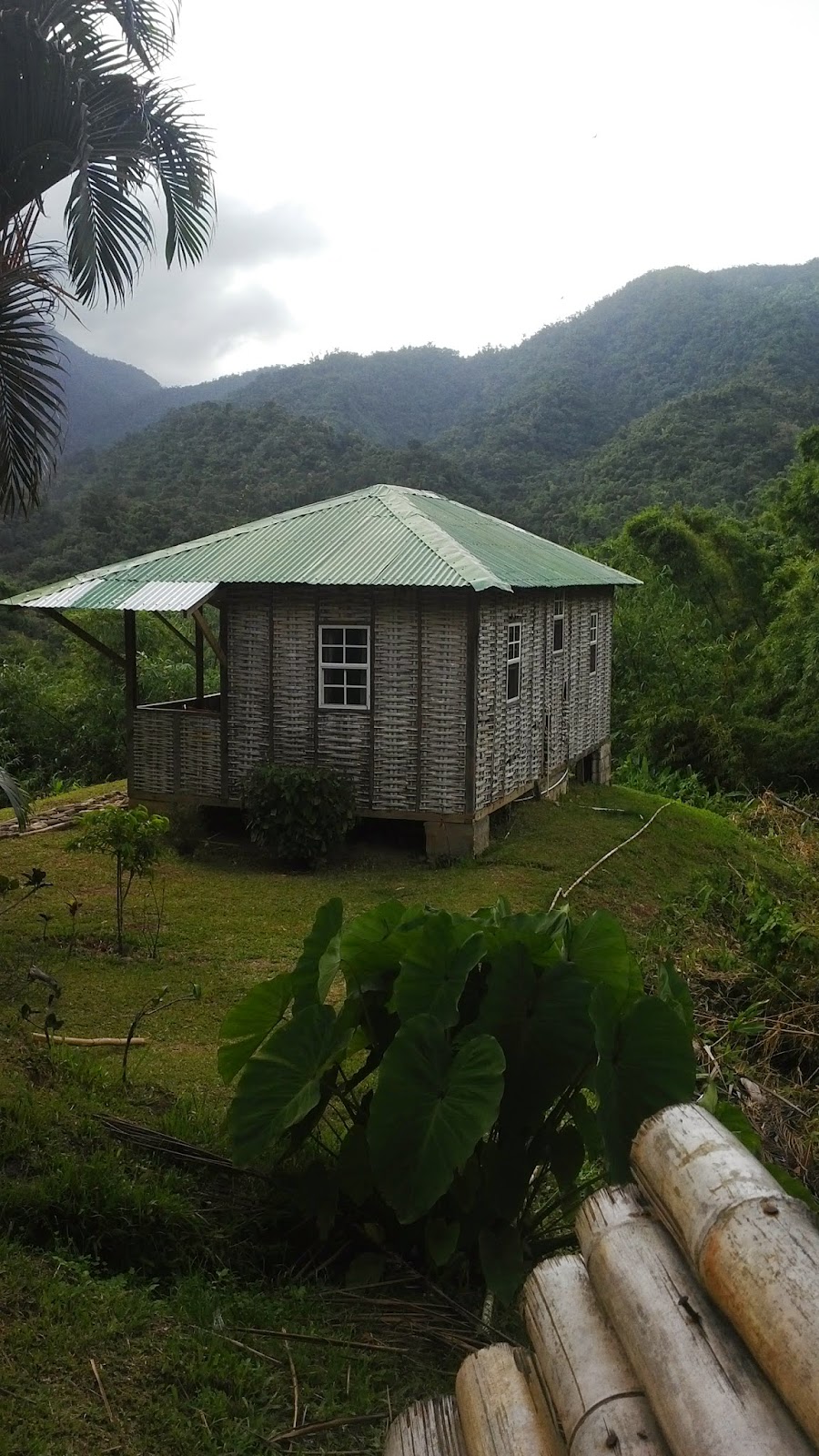 |
| A cabin at Ambassabeth |
In retrospect I can see him smiling smugly and pumping his internal fist when I waxed warm for MONTHS after that weekend about how struck I was by the community that we became part of for those few days. Part Next of his plan included repeat visits to Frenchman’s Cove beach. I am an unrepentant beach baby. My soul re-centers and I feel all the cares of the world slip away, like a shirt slipping off my shoulders with each lap of the waves, each gentle gust of sea breeze… or is that the rum? Whatever! I live for the beach. And Frenchman’s Cove, with its beautiful garden setting, its pristine, blue river with white sandy bottom (not dark and pebbly like other rivers) undulating lazily into the small bay that is Frenchman’s Cove is how I imagine the Garden of Eden.
 |
| The river at Frenchman’s Cove |
The last visit there was with family and friends and we reluctantly dragged ourselves back to Kingston after a perfect day,but not before I snapped this sunset.
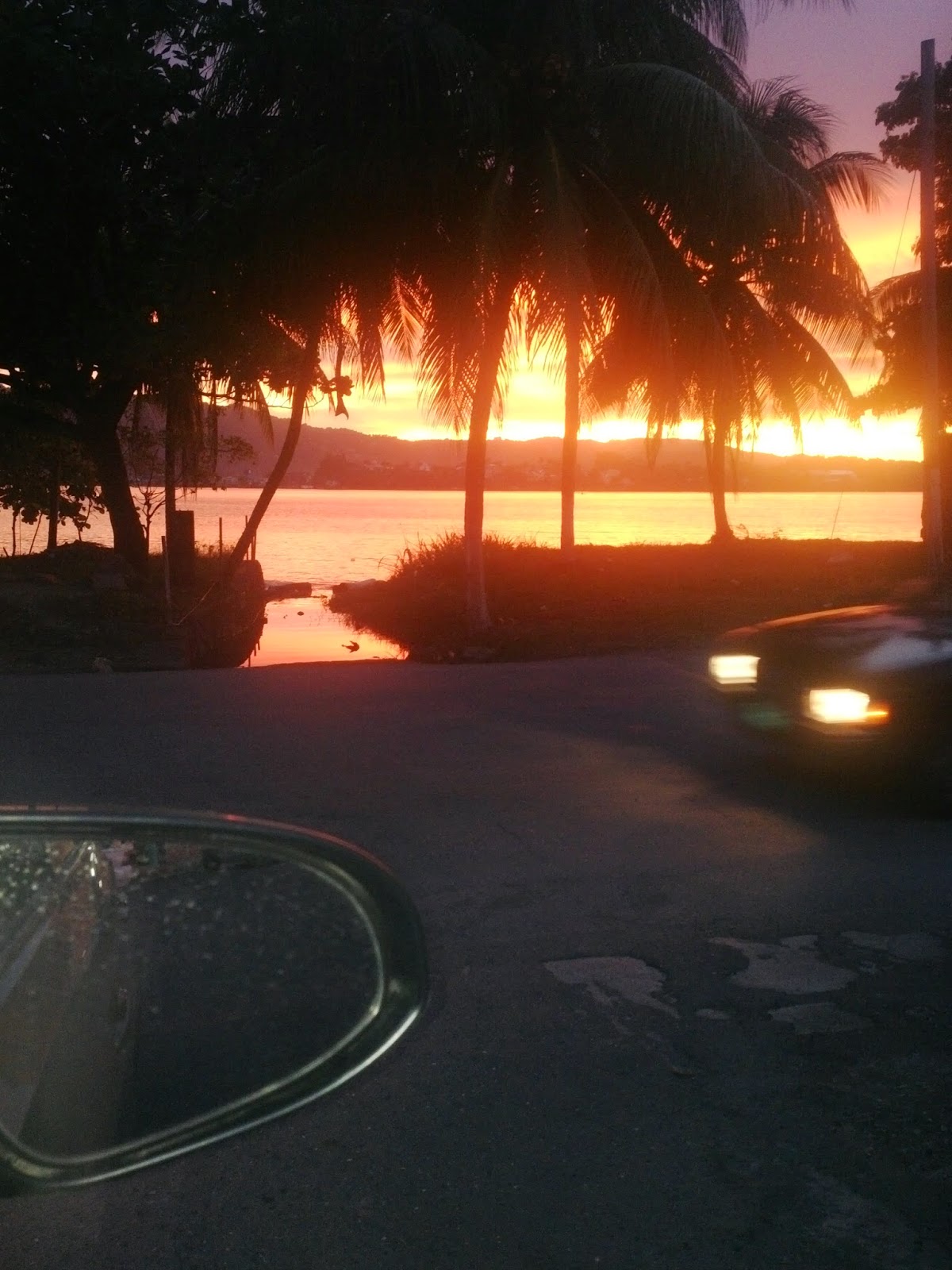 |
| Portand Sunset |
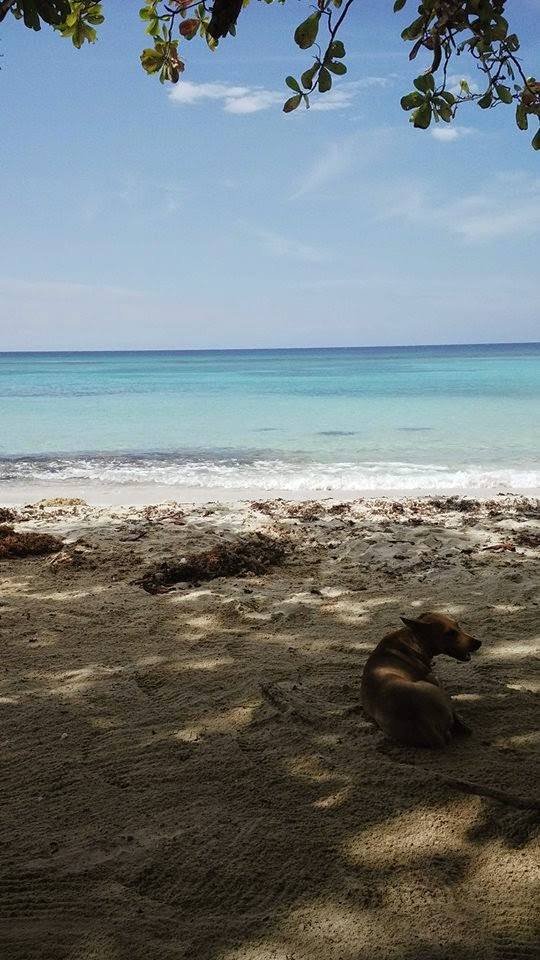 |
| Paradise aka Winnifred Beach |
But this was not said with a hint of arrogance. It was more a grateful acknowledgement, a happiness that his message had been heard and had connected with another soul. H wanted to buy his music and Johnnie found a copy of a CD and the transaction was done.
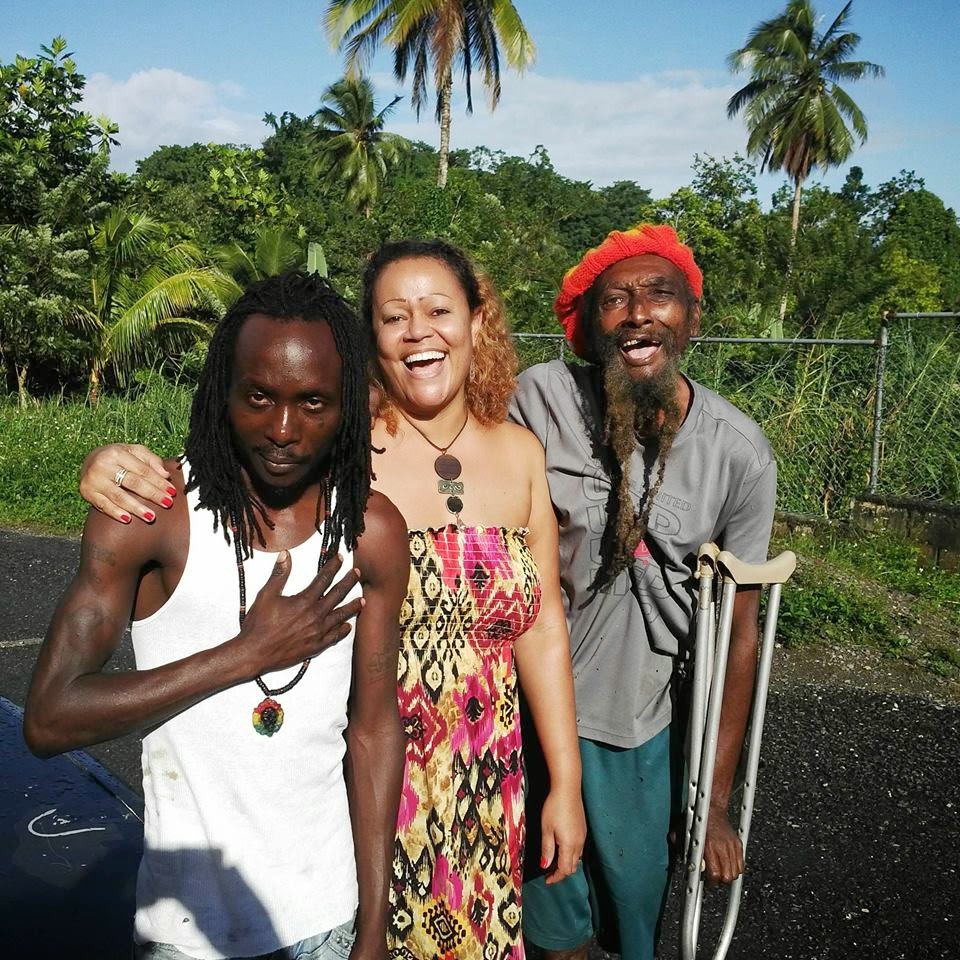 |
| From L-R: Cultural, Me and Johnnie Walker |
Simply Black and White… is it really?
This video by a white looking former beauty contestant Jamaican woman (Rosina Casserly) caused a bit of stir recently. In the video, she spoke about crime, the Chick V epidemic, and aspects of Jamaica other than balmy days sipping Appleton while waves lap around our feet… That she did this in a forum open to the world, and that she did it jokingly caused offence to many.
Anthony Bourdain’s “Part’s Unknown” CNN feature focusing on Jamaica (first aired on CNN November 16) also caused some reaction. In true Bourdain style, his story sought to capture the essence of the destination by delving into more than food and drink. As he always does, Bourdain tried to present the viewer with more than one angle, seeking to create a context for a more rounded understanding. A Jamaica tourist board feature it was not. Some people loved it while other declared embarrassment.
There’s a very strong sentiment that we as Jamaican’s ought not to “air dirty linen in public”. We once had a US Ambassador stationed here who dared to level an observation, ok, a criticism then, that as a country we tended to laud announcements rather than accomplishments. What an ant’s nest he stirred up with that statement! Not surprisingly to me, the discussion about the ambassador’s statement had more to do with who made the statement and where the statement was made, with almost zero thought given to the actual veracity of the statement. In Jamaica, form trumps principle every single time. We are extremely hung up on appearances and so called protocols without spending half of that attention and energy on the actual issue. People: we are too destitute and too deeply mired in the mess created over the years by our leaders to waste time on form. I insist.
But let’s come back to the video mentioned at the top of this post shall we. Kei Miller, brilliant Jamaican writer (his ability to articulate thought always leaves me satisfied and smiling…check out his blog) posted a comment critical of the video which eared him the ire of some other on-line commentators and the ire of the video star herself. Kei’s criticsm of the video was immediately slotted into the category of “he’s critical because the girl is a white girl and he’s black.” In his usual clear, thoughtful, introspective manner, Kei provided context for what ensued. I read and reread his blog post on the matter. Kei boldy goes where many tiptoe around and pretend as if it really doesn’t exist. But lemme ask you this: had that identical monologue done by Casserly been done by Ity and Fancy Cat, would it have been assessed in the same way? Would it have evoked the same reactions? Divides based on skin colour exist in Jamaica. We make judgments in this country based on skin colour, Yes, yes, yes…we proudly declare in our national motto: “Out of many, one people”. Right.
THE LONG LINE IN THE LADIES ROOM AT SOVEREIGN PALACE CINEPLEX
At intermission, I rushed with my young charge to the ladies room. Apparently, every other female in the house was on the same mission. The line was long. I took my place at the back of the line and prayed to God that it would move quickly. Two white looking girls, about 14 years of age, sauntered in chatting merrily to themselves. They swung their long, straight hair up into ponytails as they walked in and I watched in utter amazement as they breezed past us in the long line and simply took their place at the head of the line. Now the original head of said line was a woman, black skin, about 40 years of age. By this time, I am totally focused on what is unfolding before me. I ignored my young charge as I gave full attention to this scene. Black Woman looked annoyed, rolled her eyes and shifted her weight to her other foot as she folded her arms tightly across her chest. No one said anything, not even Black Woman. In a split second I decided that I was giving her exactly 20 seconds to take action, and if she failed to do so, I was going to step in. …19, 20, time up! I commanded my charge to stay put, and I took 3 strides to the top of the line and leaned in towards the girls. In a loud, clear, voice, calm though, I declared to them: “This is a line. This is where it starts, look at where it ends, You join the line down there.” They looked around in confusion, the confusion changed to obvious embarrassment, and they said sorry and moved to the back of the line. I went back to my own place in the line, not daring to look at Black Woman lest she see the disappointment I felt. In her. I had questions… Why didn’t she stand up for herself? Why did those white looking girls not see the line? I really don’t think they were malicious… they were simply behaving as they always did in their context of relative privilege.
“DRIVER: WE WANT A SEARCH”
Back in the early ’90’s, for a while, I used to take public transport between Kingston and Mandeville. I was engaged in on-farm research near Spur Tree and the project didn’t as yet have an assigned vehicle. It was not uncommon for the mini and coaster buses that I used to take to be stopped by police at random at various points along the route. All passengers had to disembark so the police could search for weapons and ganja. 9 out of 10 times that we were stopped for this search, the police would say to me: “Browning: you can stay inna di bus. Is aright. Si dung.” The special treatment afforded me started from the bus park, where the loader man or driver would signal to me: “Browning, come si dung inna di front.”
“HIM IS A NICE BROWN MAN. HIM CAN BE DI FOREMAN”
I knew someone who was summoned to jury duty years ago. She told me that she watched on in amazement at how the foreman was selected. See the selection criteria there… (sub-heading above). And no one objected. Including the person I knew. She wasn’t interested in the position and saw no point in introducing contention.
“WHITE WOMAN CAN’T MANAGE BLACK WOMAN HAIR”
The last time I combed my daughter’s hair was when she was in grade 4. She has a huge and gorgeous head of hair. Washing and combing it demanded prayer and fasting and push ups and pull ups…for the two of us. On this particular occasion, as her tresses got the better of me, I sighed and heaved and sucked my teeth. My normally quiet, reserved 9 year old angel said quietly, but clearly: “White woman can’t manage black woman hair.” I was stunned into silence. I was hurt that my baby saw a difference between us. I was puzzled. We both struggled through what would be our last hair episode (that’s why God invented hairdressers) and a few days later, after I figured I had processed it sufficiently, we spoke. I told her that shades of blackness was an artificial construct devised to divide the African slave population. That we as black people bought into it as we failed to recognise the glory and beauty of our black selves and instead looked at whiteness as an aspirational ideal. Mi tell har fi stop it.
 |
| Me and Rachie |
 |
| Her Glorious Mane! |
If you live in this country, then you have at least ten more stories that you can place right alongside only the 3 stories that I have chosen to share. I haven’t spoken bout how I was called coolie girl or white girl at my primary school. I haven’t shared how I was trying to make a point in a group discussion during high school and was laughed out of the room when I started with: “We as black people…” My parents, especially my mother, had a very strong sense of who they were, and passed that on to all six of us.
 |
| My Darling Antecedents |
I remember being puzzled when an old white man who was also attending the rose conference I was attending in Detroit politely asked me: “What are you?” My answer that I was Jamaican added to his confusion.
“But you aren’t white, are you? Are you black?”
“Yes I am. I come from the Caribbean where there was a whole lot of raping of black women by white men, and intermarriage between Indians, Chinese, Blacks and Whites”. Thus ended that convo.
We like to sing “Emancipate yourself from mental slavery” and we are taught to recite: “Out of Many One People”. I don’t think we get it. We still draw lines and make judgments based on colour (and the colour and class relationship can be thrown into the mix too) in Jamaica.
I have never lived anywhere other than the Caribbean (Jamaica, Trinidad & Tobago and Grenada). This is merely my experience, in the skin that I was born with. Other persons, born in a different skin, have other experiences that though different from mine, illuminate the very real colour divide in Jamaica. H insists that as a nation, as a people, we still haven’t recovered from slavery. He may be right.
Happiness at Work: Why does it even matter?
Create your own Vision. Find something: a phrase, a direction, a goal from the grand Organisational mission and distill it down to a bite sized vision directly applicable to your role and make it the driver of your actions and decisions. Even when there is obvious and blatant misalignment between what you see around you and the stated organizational goals, you can still carve out relevance to your situation and make it work for you.
Raw Vegan Food: Beyond the Salad!
So I’ve been trying to change my eating habits. Yes…I still eat meat, just less of it and no processed meats. That means I’ve put down, for now at least, Beloved Bacon and Awesome Chorizo sausage. I’m in discovery mode where beans (all of them) are concerned, and different, delicious ways to prepare them. I’ve made lentils and brown rice with portobello mushrooms and green peppers cooked with fresh herbs in coconut milk. I’ve made a wicked white bean mash which comes together so nicely with extra virgin olive oil, garlic, shallots, lemon juice and fresh parsley. I’ve made a sugar free vinaigrette with red wine vinegar, virgin olive oil, dried Italian herb mix and fresh garlic with a pinch of salt. I don’t like my salads naked. I hate them naked. And I’m on the look out for different and interesting and of course delicious ways to cook, prepare and eat the rainbow.
So when I saw an article in one of the dailies speaking about the benefits of raw foods, I took note. I also took a picture of the section where it listed some places here on the Rock where one could explore this not-quite-yet-mainstream food niche.
 |
| Zoom in for a list of Raw Food Eateries in Jamaica |
Imagine my glee when I googled a couple of these restaurants and found that they actually had an online presence that was current! Business places in Jamaica need to understand that without a current, valid on line presence they are possibly missing out on so many opportunities. It is a pleasure when a customer or potential customer can click and get location, opening hours, product listings, menus, prices and consumer feedback.
Side note: Last November I had to visit York, England for school. I invested quite a few hours researching on line where to to eat and drink in York (’cause my middle name is PLAN and because food is as important as school, right?) and complied a list complete with directions from my B&B, walking time, and the dish that I would eat at each location. I also knew what it would cost me. And so I, travelling as a single woman, first time visitor to York had a blast pub crawling, eating some awesomely delish food and sampling the local ales.
And so I looked up a couple of the places mentioned in the article and was intrigued by what I read about “Mi Hungry“. Their website described each dish and clearly stated cost. I mentioned it to a colleague of mine who is also trying to clean up her eating habits and she confirmed that she had eaten their food and recommended a couple of things to me. See why it’s good to chat and share and live out loud?
So today, I invited Miss World to accompany me there to have lunch after we shopped for groceries. She has quite an evolved palette and has a natural (inherited!) knack for blending and combining flavours so I knew she would be game and a worthy companion on this little adventure into the world of Raw Food.
So we reach on to Mi Hungry. It occupies a small corner in The Market Place, to the rear of the complex, but there are a few tables for whose who want to eat there.
 |
| Inside Mi Hungry |
I knew exactly what we were going to try: the burger and the pizza. I know there are vegan purists who resent comparisons of their food to more traditional fare. People get upset at “tofu roast” and ” meatless curried chicken” and “turkey bacon”. Calm down. More of us eat pizza and burger than not, and if your food is that good and that good for you, then you should want to share and what better way to share than to relate it to the familiar. So I ordered our selections with confidence: one half Pleaza and one Nyam burger to be shared between us. Here’s how Mi Hungry describes them:
Pleaza (Pizza): A savory crust of seeds and grains crisply dehydrated and covered with our not-cheese made from sunflower seeds, and topped with chopped onions, pineapple, tomatoes, sweet pepper, lettuce, olives, and hot pepper if you want.
Nyam Burger: Not-cheese burger, within 2 tasty buns made from walnuts, filled with our signature house tomato sauce, onion rings, tomato, lettuce, sweet pepper.
Here’s how the pizza looked:
Fresh toppings, thin crispy crust, a decent enough portion for 2 of us. It was beautiful, almost a work of art and you got the sense that someone took the time to layer and construct this by hand. The veggies were chopped up small, very neat…not at all junky and coarse. I’m happy to report that the taste was equally good. There was enough salt, a cheesy taste and enough pepper that supported an almost perfect blending of the flavours of these fresh toppings. The onion did not overpower anything, Praise Jah. The pineapple hovered underneath it all lending a delicate sweetness and her distinctive flavour that blended oh so well with the fresh tomato and sweet peppers. It was delicious.
Miss World declared the Pleaza her favourite. And while I thoroughly enjoyed it, I will most certainly get the Nyam Burger again! The “buns” were chewy and savoury and the inclusions fresh, delicious, cheesy and neatly bound together with their tomato sauce. Throughout both the Pleaza and and Nyam Burger, there was a very faint hint of fresh lime juice. Yum! Note: nothing is cooked and no flour or sugar are added.
The owner is the chef, a quiet, slender Rasta man, who was reluctant to chat, but very pleasant and gracious when I insisted on complimenting him in person. He makes the magic happen behind this mesh enclosed space.
This is harder than I thought it could ever be.
This is harder than I thought it could ever be.
People are who they are, and try as you might, you can’t get into their heads and make them act the way you want them to act.
When “people” is your child, desire becomes urgency.
You oscillate between “how did I get this so wrong” and “how did this person come from me.”
I see way more than she possibly can…I’ve been here longer. I’ve been here before.
I want to prevent her from wasting time, from making missteps.
I want her to be happy.
I also see what she doesn’t seem to see…in herself.
I see her tying herself into knots, needlessly.
I see her spinning around and around and around in her head, beating herself, doubting herself.
What role did I play in getting her to this stage.
I want to jump in and fix it, unravel the knots, turn her around and say: “Go this way. This is the best way.”
I wish there was a manual that outlined steps and outcomes. I’d follow the prescription to a tee just to avoid this angst, this turmoil, this pain, this anger, this sadness.
How do you know when to be tough and when to be nurturing? Too tough can result in snapping. In breaking.
Too much coddling and the seedling will never withstand the conditions in the open field.
I simply don’t know.
Have I caused irreparable damage?
Have I inspired or depressed?
Have I destroyed rather than created?
This is harder than I thought it could ever be.
Being effective is more important than being right!

WHY?
I had been following the tweets of #oomf (I shall call her “R”)for a few weeks. I knew nothing about her except what I gleaned from Twitter. We’d occasionally even trade tweets. Here’s what I gathered about her: she had lupus. She had been spending a lot of time in hospitals of late. R had moved from hospital to hospital. Her condition had deteriorated over the past couple of weeks. She seemed to be in pain, all over pain. She couldn’t keep any food or drink down. At first, she was able to tolerate watermelon. Eventually, not even that. Her tweets progressed from mere notifications of her current state, to what felt like resignation to a horrible existence, the absence of hope, the sound of a very weary and battered soul, and in the instances where there was shard of strength, desperate cries for help.
Many of her own followers offered words of encouragement and in some cases tangible help in the form of visits, gifts of juice and doctor recommendations. For my part, I may have reached out in a single tweet trying to commiserate. She was always in my thoughts, and I would check her timeline to catch up her latest news. I prayed for her. Pain can be so debilitating, robbing the victim of his humanity, stripping away composure and erasing hope. As for her nausea…ugh! I had morning (noon and night) sickness during my two pregnancies which started at Day 1 and continued right up to the moment in the delivery room when I pushed my babies out. It. Was. Awful. Enough said. In my case I knew why I was sick. I also knew that it would end, and I knew when it would end. In R’s case, no one could tell her the reason, and nothing was helping. She was being stripped down day by day, dollar by dollar. Yesterday, very early, a lone tweet from her pierced my morning: “Anyone?” Oh God. I scrolled to the tweet before this one, and realised that in the dark just before dawn, R had thrown out a request to TwitterLand for advice as to where she could get a nurse’s aid. Not many people are actively tweeting at that time of the morning and her cry for help went unheeded. I got out of bed and moved to the laptop. I was on a mission. I DMed her and told her that I may be able to assist with a referral. Several FB inbox messages (I don’t have to provide the explanatory link to what FB inbox is, right?) to someone I was sure could help and several DMs to R later, I had linked her with her possible solution. But I was left with one question as I pondered the situation: Why?
I thought about a FB Note (I hope you know what that is too…if you don’t, please stop reading and ask your teen to tell you what a FB note is) I had written November 2009:
Why Me? Why her? Why now?
Some of us suffer because of poor choices that we make. Others of us suffer and there is no rational answer to the question: “why?” Why did that one bullet hit and kill Pia, what anguish assails her father, why does one person get cancer and not another, why does one person get HIV infected and others engaging in risky sex escape, why, why, why? What about those of us who have misery beset us because of our own poor choices? Do we have a right to hope for mercy and redemption?
It was a very moving service that prompted these musings. I certainly did not leave with the answers, only a feeling of gratitude for the blessings that are still there in the middle of sadness, loss, regret and despair….a certain knowledge that His ways are not our ways, and that redemption is available and possible for all.
It somehow seems easier for us to reconcile consequences to actions. If I put my hand in the fire, I will get burnt. Inevitable. Painful, but expected. And we roll with those punches. But if I am walking past the stove and it somehow explodes, burning that same hand, I now contend with the same pain and then some, asking WHY… why did this happen to me? After all, I didn’t get burned through any fault of my own. In fact, some of us, having made poor choices and even wrong choices, welcome the fall out as a sort of penance for our wrong doing.
Life, though, exists and manifests with inter-relationships that we have no control over. Here’s a simple illustration: two of us are sitting perhaps 2 feet apart at the side of a pond. The fool to my left decides to pick up a large stone and throw it with force into the pond. His decision, his action. So he throws it in and there’s a huge splash. I’m pretty sure he expected that he would get splashed. And sure enough, he gets splashed. Here’s the problem though: I’m only 2 feet away, so I too get splashed, my only part in this mess being my proximity to him. The stone that he pelted into the water, startled the King Fisher about to get his morning meal in the form of a hapless fish swimming merrily in said pond. The fish escapes death, the bird goes hungry. Ripples are created and radiate outwards all the way to the other end of the pond. One single action by one person has affected, in one way or another, several other situations and persons.
So we ask why. My wise Aunt Jeannie (the same person who shared laughingly while shaking her head I as I shared with her some of the settling in pains of our first year of marriage: “Men are simple you know, Kelly…accept that and it makes it easier to deal with them…”) once replied to one of my “why?” moments with this counter: “WHY NOT?”
This is life: inter-connectedness that we will never understand or even know about… actions and consequences, some our own, many having nothing to do with us.
Last week, the parents of a student at Little Master’s school were murdered. My godson sits beside that student and his mom, my friend G, called me to talk about it. “How do you think we should deal with this situation, Kelly?” she asked. We agreed that acknowledging what had happened would probably be best, without going into the gory details, and that providing a safe space for the children to ask questions and express their feelings would be useful too. G told me that my godson had challenged her recently: “If God is supposed to take care of us, why do bad things happen? Does it mean that God is NOT taking care of us properly?” That “WHY?” again… I was naturally curious as to her response to my obviously thinking and intelligent godson. Here’s what this wise mummy replied:
“God created all things and allows situations to happen (big fish eat fish). Humans are different from the rest of God’s creations as we can think and reason at a higher level. Our job, as His people, is to do the right things in our lives.“
I can’t answer every single “why?” that crops up as I make my way in life. My faith allows me to reach out and ask for and accept grace when I am faced with the consequences of my own actions. That same faith challenges me to reach out and ask for grace to deal with circumstances that are created without my participation. I don’t believe that my life is a series of random events. I try daily to embrace My Story. There are lessons I’ve learned. There is a God that I’ve come to know. I believe that I have grown as a person, and I think that I have been able to journey with people though their own story, sharing strength and insight that I gained along the way through my own experiences. I believe that even though I may not be able to answer “why?” today, there may come a day when I possibly can. I believe that every single thing happens for a reason, and that as at today, it’s not all over…”the story nuh done yet.”



